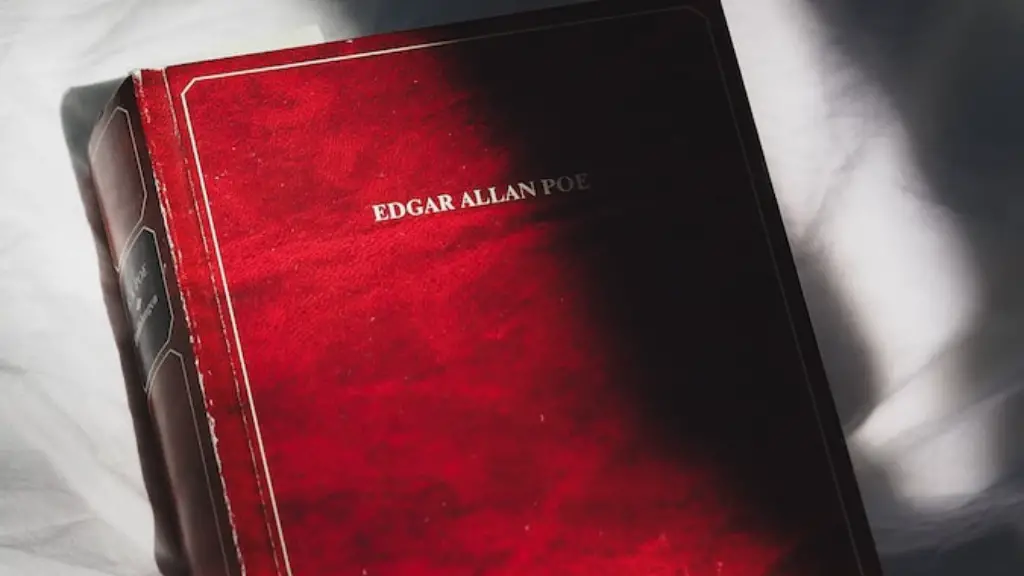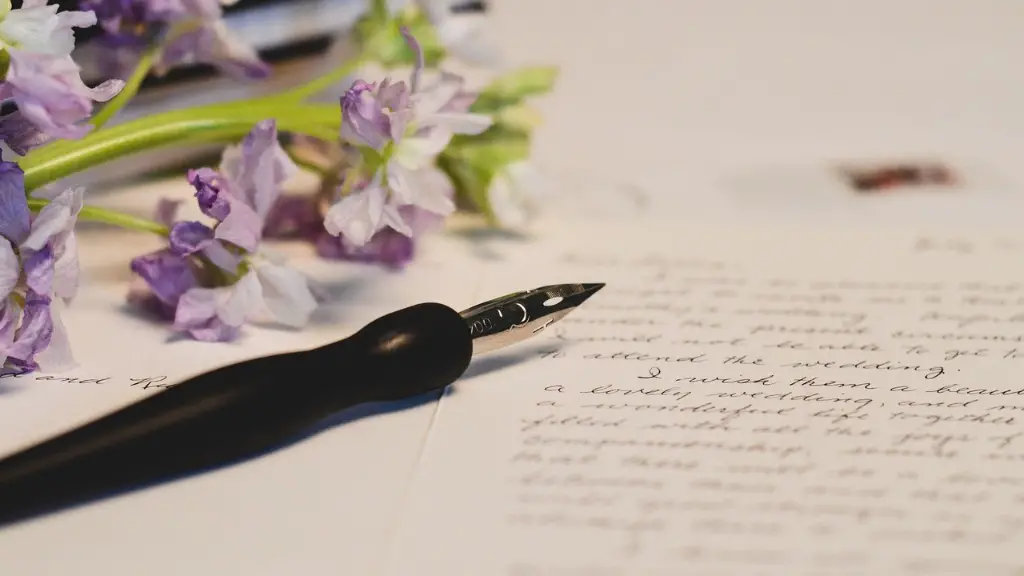Introduction to A Level Poetry Analysis
A Level Poetry Analysis is an advanced-level course in Literature. It involves the critical analysis of a poem’s language, form, structure, and context. Students are expected to be able to approach a poem with precision and be able to draw relevant conclusions from what they uncover. Often, specific skills are necessary for them to be able to properly understand and analyze a poem. As a result, it is important for students to have a solid understanding of literary terms and techniques when taking this course. Fortunately, it is possible to make use of effective strategies and techniques in reading and analyzing the poem.
In-Depth Understanding of the Poem
Before students attempt A Level Poetry Analysis, they should be comfortable with understanding the poem’s literal meaning. This shall ensure a deeper understanding of the poem. As such, they should be able to determine the key words, as well as the figures of speech. This involves analyzing the connotations of a given word, in addition to their denotations. Doing so will help them identify the poem’s central idea, as well as its accompanying themes. Once they have identified these, they shall be able to go about exploring the poem’s patterns and the underlying purpose of the poem.
Analysis of Themes, Tone, and Mood
After grasping a general understanding of the poem, students should categorize and analyze its various themes, as well as its tone and mood. This involves examining the tone, the atmosphere, and the imagery within the poem itself. In doing so, they should be capable of determining the poem’s general message and the feelings that it conveys. Through this, they shall be able to discern the poet’s attitude towards the topic at hand, as well as their intentions in their chosen word choice.
Analysis of Structure, Technique, and Metaphor
In addition to themes and tone, students need to become familiar with the structure and techniques of the poem as they are all integral parts of the entire poem itself. This involves understanding the poem’s language and structure, such as its meter, stanzas, and rhetorical devices. It is important to note the intentional placement of certain literary elements, as the combination of these all can influence the connotations and the tone of the poem. It is also important for students to note down any metaphors present in the poem and figure out their implications.
Understanding of Poetical Context and Background
To have a better understanding of the poem, it is important to understand the poetical context and the background of the poem. This includes researching the historical and cultural contexts surrounding the poem, and any related works. Furthermore, one could also explore the poet’s biography, as what drives and influences a poet heavily reflects on their work. Doing these will allow students to form a better perspective and understanding of the poem, as well as potentially uncovering hidden messages and implications in the poem.
The Role of Imagery and Sound in Poetry Analysis
Iages and sound are two major components of poetry analysis. Through imagery and sound, a poem’s meanings and emotionscan be expressed and conveyed. Analyzing these elements and interpreting the poet’s intentions is an essential part of the poetry analysis process. It helps to form an understanding of how the words are used, as well as their properties in conveying particular messages and feelings. Therefore, students should pay special attention to the imagery and sound of the poem to gain a more comprehensive perspective.
Opposing Interpretations of the Poem
Despite rigorous analysis, it is important to remember that there can be multiple interpretations of a single poem depending on an individual’s perception and beliefs. As a result, it is expected of students to have an open mind when dealing with different interpretations. It is also important that they can argue their point in an articulate manner, while respecting the interpretations of other people. Having a well-rounded understanding of the poem, as well as other interpretations, can further enhance their analytical skills in the course of A Level Poetry Analysis.
Application of Strategies for Planning and Writing of A Level Exam Papers
When undertaking A Level Poetry Analysis, it is necessary for students to effectively plan and write their analysis. This can be done by taking the poet’s aims and objectives into consideration. They should proactively apply relevant definitions and techniques from the course materials. This will enable them to make sound judgments on the various elements of the poems, while making use of specific examples to support their arguments. It is also beneficial to write the essay with an argumentative tone, while being concise while discussing the poem’s structure.
Familiarity With Source Texts and Contextual Background
In order to be able to read and analyze the poem on a deeper level, students need to be familiar with the source texts and the contextual backgrounds. This includes looking into the themes of other poems by the same author or similar poets. Through this, students shall be able to make comparisons and draw implications between the poem in question, and other relevant works. It is also important to look into related texts which are relevant to the poem, such as historical backgrounds and cultural aspects.
Synthesis of Ideas and Demonstration of Fluency
When writing their essays, students should also pay attention to how they synthesize their ideas and demonstrate their fluency in presenting and analyzing a poem. This involves the ability to effortlessly link up different components of the poem in their analysis, as well as the ability to clearly express and communicate the student’s thinking process. This will help the examiner gauge the student’s level of understanding, as well as enhance the overall fluency of their essay.
Techniques for Processing and Remembrance of Information
In taking A Level Poetry Analysis, students should be able to apply many effective techniques and strategies to process, understand, and remember the valuable information they had learnt. This involves making notes of the main points and several examples of the poem or related readings. It also includes making use of visual cards or graphs to help them remember key points. Apart from traditional methods, they can also employ effective memory techniques such as linking and chunking, which will assist them in better recalling the information.
Analyzing of Syntax and Diction
In order to fully understand the poem in its entirety, it is important for students to analyze the syntax and diction of the poem. This involves understanding how different phrases, words and sentences are used in the poem, as well as the way words are put together to create a particular effect. For example, the use of certain words and the placement of certain words within a sentence can illustrate the poet’s attitudes and emotions towards certain topics, as well as their specific intentions in the poem.
Exploration of Critical Analysis
Exploring in-depth critical analysis techniques is an important part of A Level Poetry Analysis. This includes the understanding of the use of symbols, metaphors, and other literary devices. It also involves developing critical thinking skills in order to understand how poets use literary techniques to communicate their ideas and convey emotion. Through this approach, students will be better able to draw informed conclusions about the poem at hand.
Interpretation of Poem in Prescribed Contexts
Interpreting the poem within different prescribed contexts is a valuable component of A Level Poetry Analysis. This includes interpretation within art, literature, and current affairs. Such context includes exploring their relevance to present-day issues and challenges, and understanding the lingering historical messages presented in the poem. Through this, students shall be able to appreciate the timelessness of the poem and its messages.
Role of Interrogation in Poetry Analysis
During the course of analyzing a poem, it is necessary for students to interrogate the poem by questioning its intent. This includes exploring the purpose of the poem and the emotions that it seeks to convey. It also includes understanding how a poet relates to the poem, as their personal experiences can often be clearly enunciated through their poem. Additionally, it is important to think critically and respond to the poem in a thoughtful manner.
Practice and Reflection for A Level Poetry Analysis
For students to truly excel in A Level Poetry Analysis, it essential for them to constantly practice and reflect on their understanding of the poem. This is done by reading and analyzing various poems, and attempting to explain them to others. Through this, students will gain a greater appreciation for the poem and its underlying messages. Furthermore, they will also be able to apply the same principles to other related works, and potentially unlock new perspectives.




